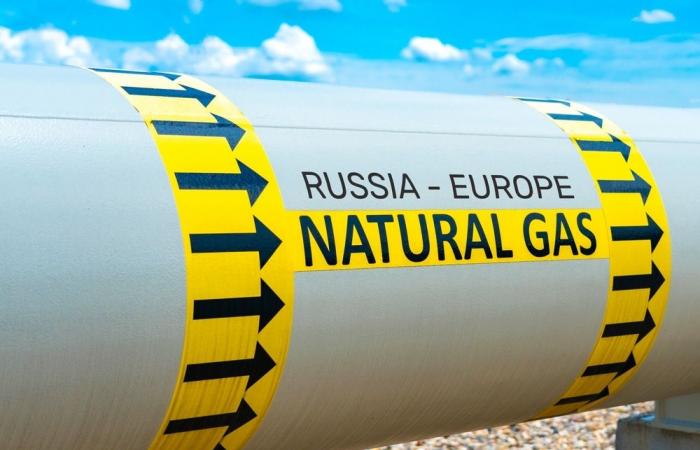On May 6, 2025, the European Commission presented a proposal for regulation aimed at prohibiting any import of gas from Russia by the end of 2027. This measure is an extension of the economic sanctions imposed by the European Union following the invasion of Ukraine by Russia in February 2022. It specifically targets the long -term supply contracts, still active in several member states.
Objectives and perimeter of the Russian gas ban proposal
According to the document presented in Strasbourg, the European Commission wishes to prohibit the signing of any new natural gas import contract from Russiawhether it is transported by gas pipeline or in the form of liquefied natural gas (LNG), as well as renounce renewing existing contracts at their maturity.
This prohibition would also concern Spotting markets. In practice, it aims to put an end to any structural dependence to Russian hydrocarbons throughout the territory of the Union.
According to data communicated by Bloomberg et Reutersthe deadline set at 2027 takes into account the contractual and logistical constraints of the Member States. It also aims to guarantee supply security via increased diversification.
Current state of gas flows between Russia and the European Union
Before 2022, Russia provided nearly 45 % of the gas consumed in the European Union. In May 2025, this proportion fell to environ 18 %according to the latest estimates of the Commission. However, some member states, such as Hungaryl’Austria or the Slovakiacontinue to receive gas via Le Gazoduc Turstream And import Russian LNG via specialized terminals.
The long-term contracts in progress with Gazprom provide in some cases “Take-Or-pay” clauses, involving a minimum purchase commitment, regardless of the volumes actually delivered. The European regulation project would aim to prohibit any extension or renewal of these agreements beyond their natural deadline.
Legal and political obstacles: can the EU do what it wants?
The measure is based on a legal basis still under discussion. As the specialized site points out OilPrice.comthe European Commission does not have the capacity to unilaterally cancel existing contracts concluded by national companiesapart from the case of duly motivated force majeure. The Union must therefore rely on the Member States to transpose this prohibition into their national legislation.
In addition, the unanimity of the council is required to adopt the proposal. Some Member States, notably Hungary, have expressed reservations, even a frontal opposition, to any restrictive measure in this area. The Commission therefore plans Flexibility clauses and Differentiated transition timewithout calling into question the target of total exit on a European scale.
European Union vs Russia: a measure inscribed in a long -term strategy
This initiative intervenes in a context of gradual reduction in energy dependence to Russia. Since 2022, the European Union has:
- implemented a Embgo on 90 % of Russian oil imports by sea;
- established a Price ceiling at 60 dollars For Russian crude oil, in coordination with the G7;
- prohibits the importation of coal and refined products from Russian oil.
In parallel, the EU has increased LNG imports Coming from the United States, Qatar and Nigeria, and multiplied intra-European interconnection projects to fluidify the distribution of gas between member countries.
According to European Commission data, imports of Russian goods have dropped 91.2 billion euros Between 2021 and 2024, while exports to Russia fell from 48 billion euros.
2026: The start of the end of Russian gas for Europe?
The draft text must now be subject to the Council and the European Parliament. Its validation will depend on the compromise found between the Member States, in particular on the methods of application in countries still exposed to Russian gas flows.
In the event of adoption, the legislation could come into force during 2026, with a Complete prohibition applicable at the end of 2027. It would impose European importers and distributors of Search alternative suppliers and adjust their contracts accordingly.
The European Commission considers that the objective is technically achievable, in particular thanks to the development of LNG infrastructure, the drop -in trend in domestic gas demand, and the emergence of renewable capacities. However, occasional tensions on prices or availability are not excluded, in particular in the event of extreme climatic conditions or geopolitical disturbances in supplier countries.








